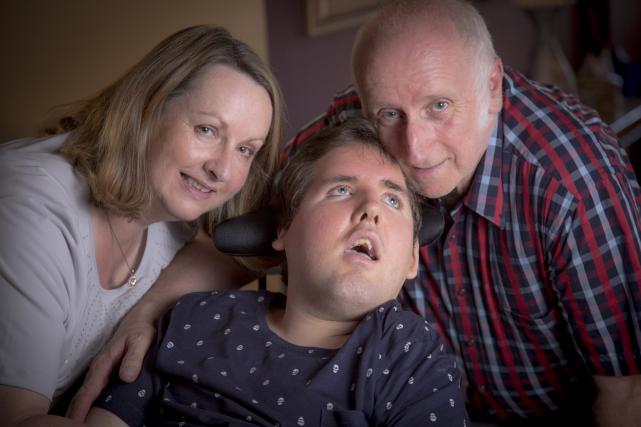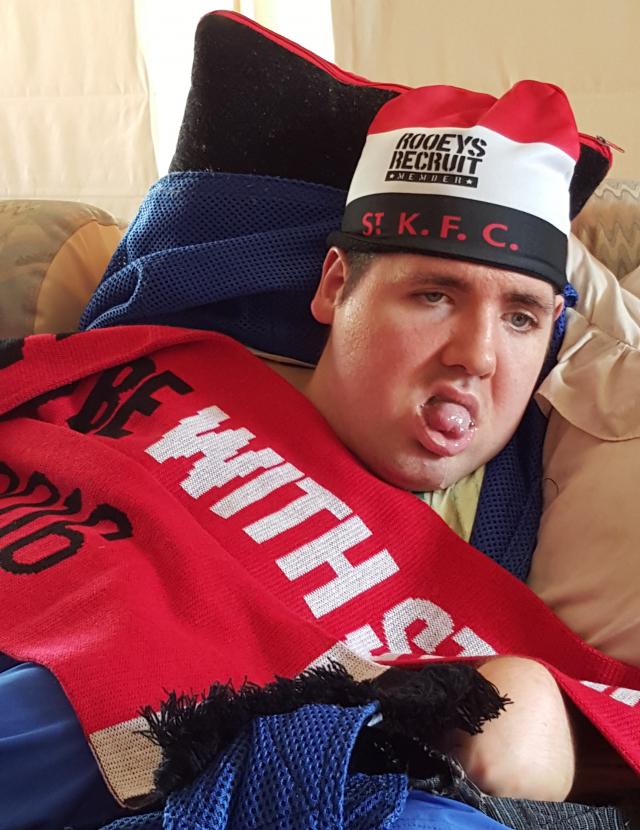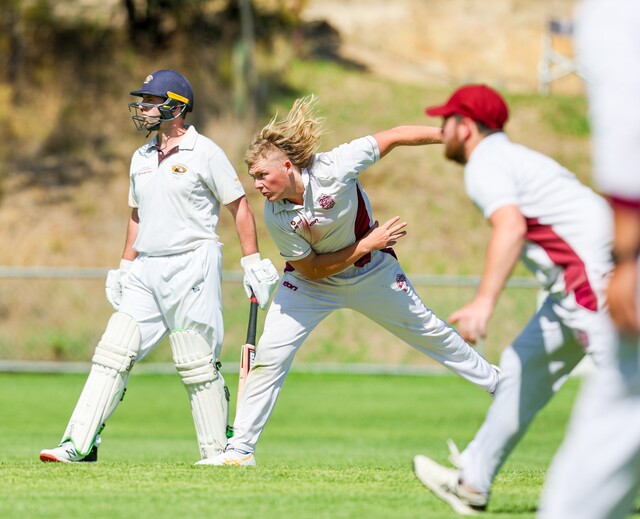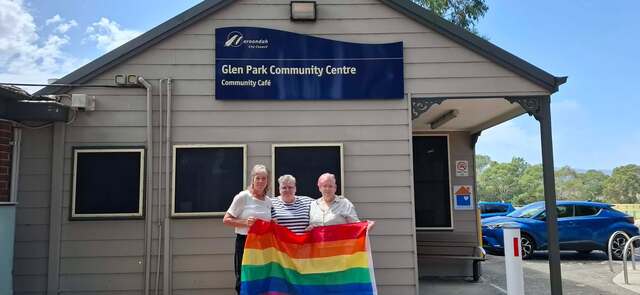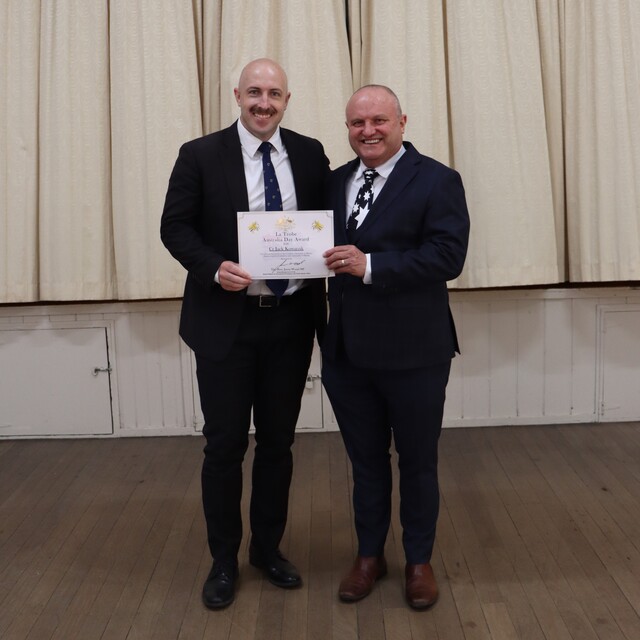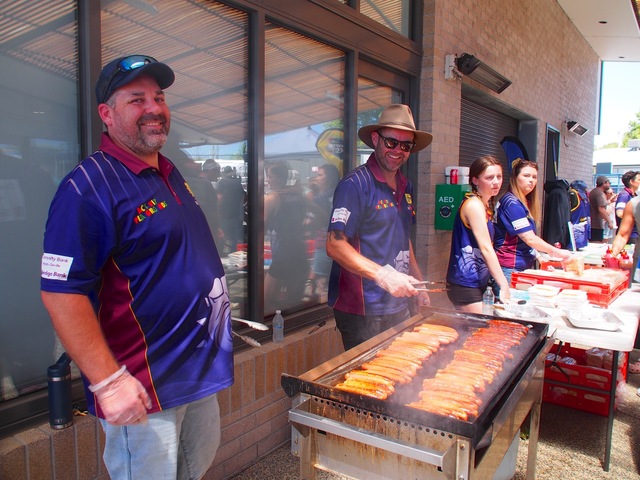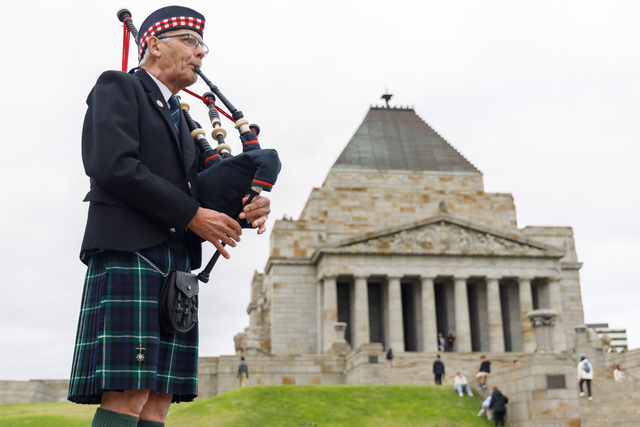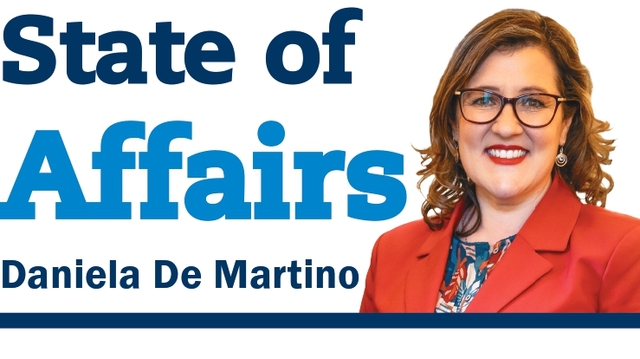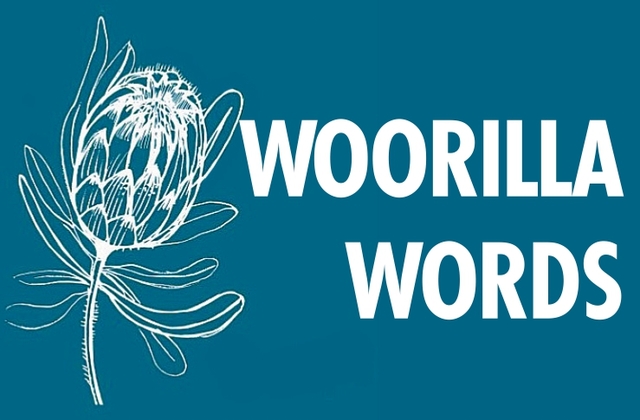As an infant Grant Cochrane spent some of his first few months of life living in Mount Evelyn awaiting what was perceived as his inevitable death.
But now you would best describe his life as a miracle, exceeding all expectations when given a life expectancy of one to two years after his birth.
With all the odds stacked against him, Grant lived a safe and loved life before he died aged 33 on 15 January.
From day one, Grant was not given much chance of survival when he started having seizures and experienced a catastrophic loss of oxygen to his brain just after birth.
Abandoned at the Royal Women’s Hospital, Grant became a ward of the state and was placed into foster care but due to the amount of care needed, he soon became the youngest resident to live at the Rosine Nursing Home in Mount Evelyn at just 12 months old.
Having seen this little boy fighting for life in an environment that was not ideal for an infant, Lilydale residents Paul and Alison Copeland took Grant into their family first as respite foster parents and then as full time carers when he was 18 months old.
“It wasn’t hard to feel compassion for him. Grant was a beautiful baby with big blue eyes and a mass of curly blond hair,” Mr Copeland said.
At the time, Mr Copeland said he and his wife had not had any experience with disability but he said in some ways that made it easier for what was to come.
“For the first twelve months that Grant was with us, we committed ourselves to a program of therapy, designed specifically for Grant, to help reprogram his brain to learn new neurological pathways to improve function,” he said.
“It was an intense time of daily exercise, approximately seven hours a day, with only Sundays off. There was a team of dozens of helpers in and out of our home.”
The improvements witnessed in Grant was unbelievable. He could move a few inches forwards on the floor, he was happy instead of crying almost all the time and the myoclonic or muscle spasms stopped.
“Eventually he was old enough to attend Mount Evelyn Special Developmental School, where he stayed from kindergarten until he graduated at the age of 18 in 2006,” Mr Copeland said.
Those years were not without challenges, with Grant being rushed to hospital multiple times in a life threatening condition because of the regular seizures he was having.
After being diagnosed with Lennox Gastaut Syndrome, a type of seizures that cannot be controlled with medication, Grant was the second patient at Monash Hospital to have a vagal nerve implant when he was about seven years old.
As Grant’s brain matured his seizure frequency settled and he was transferred into the care of Assistant Director of Eastern Health, Dr Patrick Carney, where he was treated for 13 years.
“Despite Grant’s health issues, he was a beautiful young man. He was content, generally relaxed and enjoyed a good quality of life,” Mr Copeland said.
“He had regular outings, with two days a week spent at Scope Lilydale, having fun with the wonderful caring staff there. He had walks near our home or at Lillydale Lake and a holiday at the Gold Coast courtesy of the Make A Wish Foundation where he had an up close encounter with the dolphins.”
A passionate St Kilda supporter like his father, Grant and Mr Copeland would spend the football season watching the games in his room, a memory Mr Copeland will never forget.
Although unable to communicate through speech, Mr Copeland said you could always tell what he was feeling depending on his facial expressions.
“The most heartwarming response from him was his smile often given when a carer arrived and greeted him.
“Alison loved when first thing in the morning she would go into his bedroom and he would reward her with a smile or would look her straight in the eye, a contact that spoke depths of emotion and connection.
“Grant couldn’t speak, but he could vocalise. It was such a highlight to hear him laugh or hoot with pleasure.”
Mr Copeland said one of Grant’s best qualities was that he was a great listener and he would give you his utmost attention.
“It was so easy just to chat with him and you would regularly get the feeling that he knew what you were saying,” he said.
For 33 years Mr and Mrs Copeland dedicated themselves to giving Grant the best chance at life he could possibly have.
“Grant has impacted our lives in ways we are still discovering. He showed incredible resilience and determination to overcome illness,” Mr Copeland said.
“One of his doctors early on said that he was like Rocky the film character Rocky the champ the boxer, always doing a comeback, so the nickname Grant the Champ was born.
“But this time Grant didn’t come back. This time the seizures were too overwhelming and adversely affected his breathing.”
Mr Copeland said Grant’s death has left a large whole in his and his wife’s life but they know Grant is now no longer in pain.
“He brought us joy, taught us patience, and enriched our lives immeasurably.”
To see a Youtube video snapshot of Grant’s life from his age of 18 months when Paul and Alison started caring for him full time to January 2019 when he was 31, search for ‘Grant the Champ, a life worth living’.

